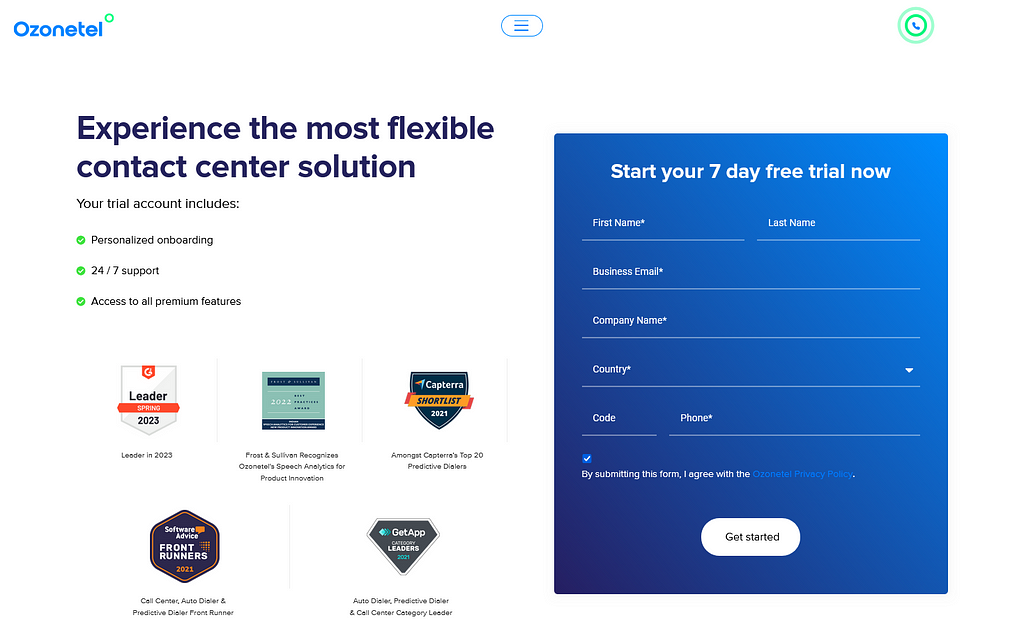- Resources
- 5 reasons customers (still) need your contact center
5 reasons customers (still) need your contact center

Do you expect to create a product or service so perfect that customers never need to speak with you? Don’t overlook the critical role of customer communications when growing your business. Here is why.
Customers don’t pointlessly want to talk to your business. The popular quote by Jeff Bezos states it best “The best customer service is if the customer doesn’t need to call you, doesn’t need to talk to you. It just works.”
So why do businesses create call centers? Can’t they channel their customer service budget into marketing and product development instead?
Unfortunately, not. There is an older adage by a certain Mr. Murphy that also holds true “Everything that can go wrong will”. And here is where your contact center comes in.
Almost all of us know how flawlessly Netflix works. Yet even this seemingly perfect service can break. Last year, when someone hacked into my Netflix account, I really missed having a toll-free number to call. Earlier in the year when I ran into issues with Google Pay I simply couldn’t find a solution or a phone number to call, and eventually dropped using the service. In fact, I recently noticed a site called gethuman.com that gives you phone numbers to contact almost any business. Their tagline says it all: get a company on a phone faster, and get better help”
In this article, we will explore:
So why do customers want to call or chat with your business? Here are the top 5 reasons why:
Your customers may want to interact with you via phone calls, social media, apps, website chats, or other digital channels. By creating a well-managed omnichannel contact center you make these interactions faster and more convenient for them. You also capture customer data in meaningful ways to provide a 360-degree view of the customer.
- To research a product
The first place anyone goes to research products or services is the internet. But sometimes, the information is overwhelming. As Mahesh Chaddah of reservations.com says “Even tech-savvy people have non-tangible, non-checkbox criteria that they want to search.”2 For example, a person planning a holiday might be looking for ways to make the trip more enjoyable for say an elderly parent. She has doubts and concerns she needs to clarify with a person. Or she might be too busy to do her own research. Because with so much information present online, getting a human opinion can really make things easier and faster for people. Having an agent available at this stage via live chat or phone could make a huge difference to both information-gathering and decision-making. - To make a purchase
Ideally making a purchase should be a smooth, seamless, single-step process. Nothing beats the convenience of a “click to buy” button. But considering what an important stage this is in your customer journey; it is prudent to have a customer support phone number at hand. The number should speedily connect customers to well-trained agents who are experts at allaying any concerns and quickly solving any last-minute hurdles for the customer. - To ask a questionNo matter how much information you provide via tutorials and guides and videos, there will always be that one unique doubt that someone has. Asking questions about how a product or service works accounts for 10-20% of all call center queries. Sometimes, people find it easier to speak to a human than to search for the information themselves. And at other times it’s a question your team didn’t expect would crop up at all. Apart from phone support, customer support via WhatsApp is also a terrific way to handle these queries.
- To complain60-80% of your contact center is dedicated to the unpleasant task of managing complaints. When handled correctly, these interactions can prevent damage done to customer experience and even improve customer loyalty. People are more forgiving than we give them credit for. They know mistakes can happen. When they feel assured that they can complain to your business and expect prompt redressals, it increases rather than decreases their desire to do business with you.
- To give feedbackEveryone has an opinion, and they like it to be heard. The topic of customer feedback is both an art and science. It’s important to give customers a forum where they can express their feedback. This could be done via automated calls, emails, text messages. The frequency and timing of these interactions can dramatically affect their feeling of engagement.
Conclusion
A contact center is a hub that lets you connect with your customers on their terms. Instead of treating it as a cost center, treat it as an opportunity to engage customers, shape customer experience and deliver invaluable insights for your marketing and product development efforts.
Also Read:
How to be available for your customer on multiple channels
Sources:
1 gethuman.com
2 Rethinking Omnichannel Engagement, 2019 Special Report, Customer Contact Week.







